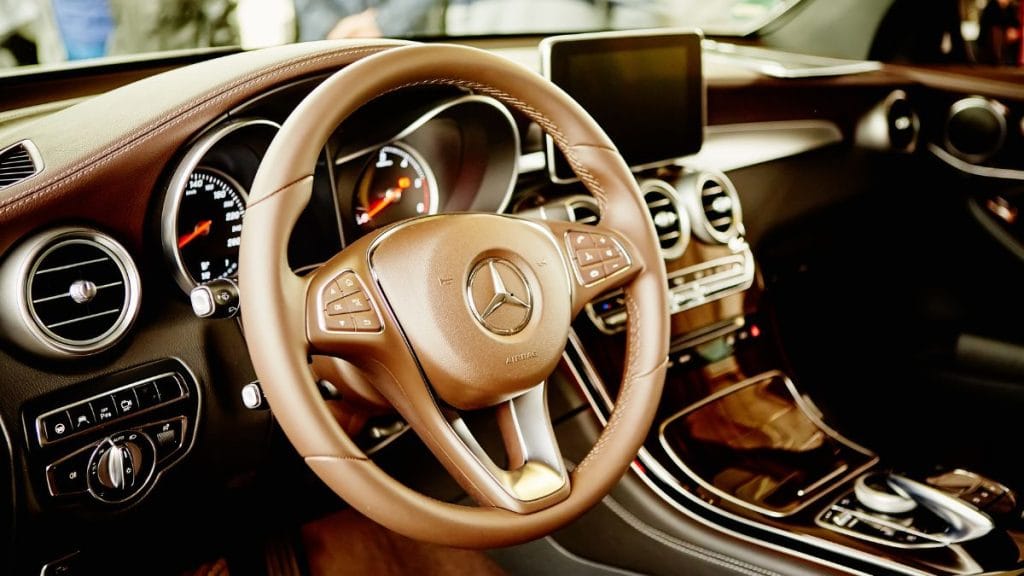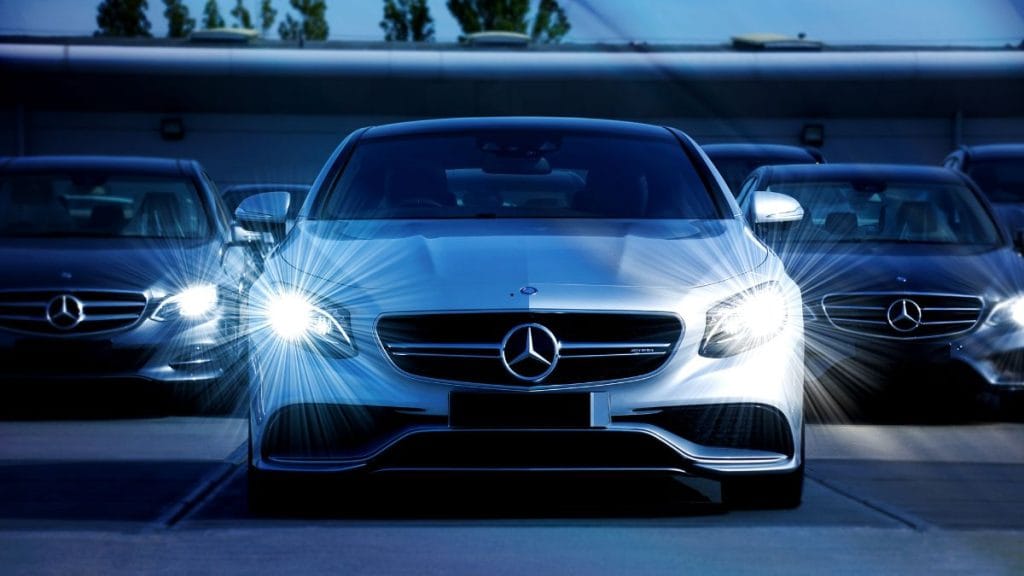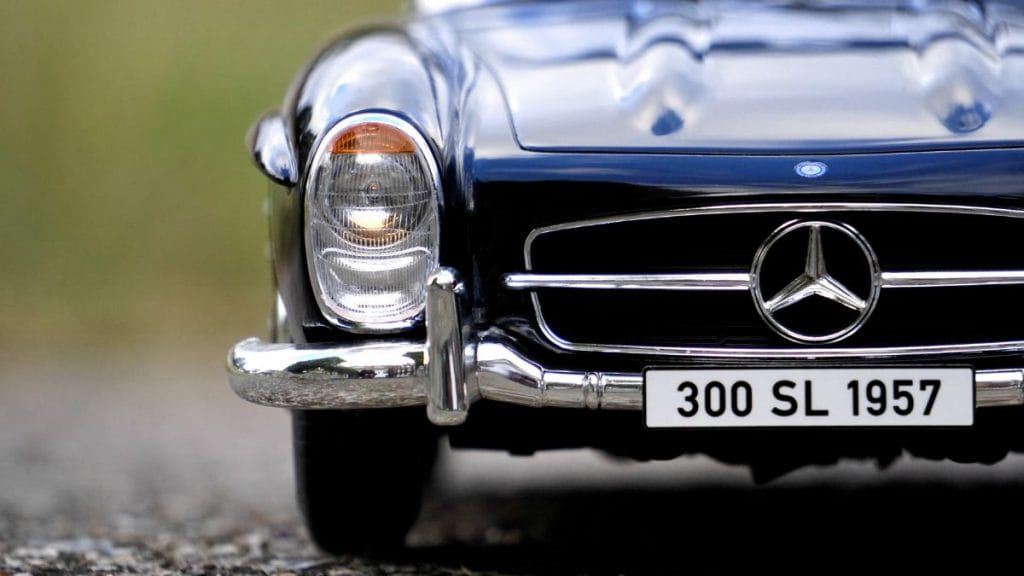Mercedes-Benz has long been synonymous with luxury, performance, and cutting-edge technology. Founded on the principles of innovation and excellence, the brand has consistently set the benchmark in the automotive industry. From pioneering the first automobile to revolutionizing modern electric vehicles, Mercedes-Benz has maintained its reputation as a leader in luxury transportation.
In this article, we’ll dive into the history, philosophy, and technological marvels of Mercedes-Benz. We’ll also explore how the brand has positioned itself as a global icon of prestige while addressing challenges and seizing new opportunities. Let’s begin by looking at where it all started.
The History of Mercedes-Benz
Founding and Early Years
The story of Mercedes-Benz begins with Karl Benz, who, in 1886, developed the world’s first gasoline-powered car—the Benz Patent-Motorwagen. This groundbreaking invention marked the birth of the modern automobile. Around the same time, Gottlieb Daimler and Wilhelm Maybach were also making strides in automotive technology with their internal combustion engines.
In 1926, the two innovators’ companies, Benz & Cie and Daimler-Motoren-Gesellschaft (DMG), merged to form Daimler-Benz, giving rise to the iconic Mercedes-Benz brand. This collaboration brought together exceptional engineering expertise and a shared commitment to redefining transportation.
Pioneering Moments in Automotive History

Mercedes-Benz has a legacy of firsts in the automotive world. The brand introduced groundbreaking innovations like the first diesel-powered passenger car (1936) and the first safety cage (1951). Mercedes-Benz also played a pivotal role in advancing automatic transmission systems and turbocharged engines, cementing its reputation as a technological pioneer.
Each decade brought new milestones, from the sleek designs of the SL series to the robust off-road capabilities of the G-Class. These advancements weren’t just about functionality; they reflected a dedication to blending luxury with innovation.
The Philosophy of Luxury at Mercedes-Benz

Design Excellence
Luxury at Mercedes-Benz isn’t just about opulence; it’s a commitment to perfection. Every car produced by the brand is a masterpiece of design. From the aerodynamic curves of the S-Class to the imposing grille of the G-Wagon, Mercedes-Benz vehicles are designed to turn heads.
The brand’s design philosophy, “Sensual Purity,” combines minimalism with elegance. Interiors are crafted with premium materials like leather, wood, and brushed aluminum, offering unparalleled comfort. Features like ambient lighting and ergonomic seating further elevate the driving experience.
Precision Engineering
Precision engineering is at the heart of Mercedes-Benz’s luxury appeal. German engineering ensures that every component of a Mercedes-Benz vehicle performs seamlessly. Attention to detail is evident in everything from the smooth gear transitions to the quiet yet powerful engines.
The brand’s rigorous testing procedures guarantee durability and reliability, making each vehicle a testament to craftsmanship. When you drive a Mercedes-Benz, you’re not just driving a car; you’re experiencing decades of engineering excellence.
Technological Innovations by Mercedes-Benz

Advanced Safety Features
Mercedes-Benz has always prioritized safety alongside luxury. The brand pioneered airbags, Anti-lock Braking Systems (ABS), and electronic stability control. Modern models come equipped with cutting-edge safety technologies like adaptive cruise control, lane-keeping assistance, and automatic emergency braking.
The latest addition to Mercedes-Benz’s safety arsenal is the PRE-SAFE® system, which prepares the car and passengers for an imminent collision. It’s innovations like these that have earned Mercedes-Benz its reputation for being as safe as it is luxurious.
Smart Connectivity
In today’s digital age, connectivity is king, and Mercedes-Benz leads the charge with its MBUX (Mercedes-Benz User Experience) infotainment system. Powered by artificial intelligence, MBUX offers a voice-activated assistant, seamless smartphone integration, and real-time navigation updates.
Features like augmented reality overlays for navigation and gesture-based controls make driving intuitive and enjoyable. Mercedes-Benz’s focus on connectivity ensures that drivers are always in command, whether they’re navigating a city street or embarking on a cross-country journey.
Sustainability and Electric Revolution
Mercedes-Benz is redefining luxury with a focus on sustainability. The brand’s EQ series represents its commitment to electric mobility. Models like the EQS and EQB deliver zero-emission driving without compromising on performance or style.
Beyond vehicles, Mercedes-Benz is investing in sustainable production methods and recyclable materials. By combining innovation with environmental responsibility, the brand is paving the way for a greener future.
Market Position and Global Reach

Branding Strategy
Mercedes-Benz has mastered the art of branding by consistently associating itself with luxury, innovation, and prestige. Its iconic three-pointed star logo is recognized worldwide as a symbol of excellence. Advertising campaigns often emphasize the emotional and aspirational aspects of owning a Mercedes-Benz, portraying it as not just a car but a lifestyle statement.
The brand’s tagline, “The Best or Nothing,” encapsulates its commitment to superior quality and performance. Sponsorships in high-profile events, such as Formula 1 and international fashion shows, further reinforce its image as a trendsetter in both technology and luxury.
Expanding in Emerging Markets
While Mercedes-Benz has a strong foothold in Europe and North America, it has actively expanded into emerging markets such as Asia, Africa, and the Middle East. Countries like China and India have shown a growing demand for luxury cars, making them key markets for the brand’s growth strategy.
To cater to these regions, Mercedes-Benz has localized production facilities and tailored its marketing efforts. For example, it has introduced models that balance luxury with affordability, appealing to the rising middle class in these markets. Despite challenges like regulatory barriers and economic volatility, Mercedes-Benz continues to adapt and thrive globally.
The Role of Innovation in Maintaining Leadership

Continuous Research and Development
Mercedes-Benz allocates significant resources to research and development (R&D), ensuring it remains at the forefront of technological advancements. Its R&D centers are dedicated to exploring next-generation technologies, from autonomous driving systems to hydrogen-powered vehicles.
Collaborations with tech companies, universities, and startups have accelerated the development of cutting-edge innovations. For instance, partnerships with NVIDIA and Bosch have bolstered its capabilities in artificial intelligence and automated driving. By fostering a culture of innovation, Mercedes-Benz stays ahead in an ever-evolving industry.
Staying Ahead of Competitors
Mercedes-Benz faces stiff competition from brands like BMW, Audi, and Tesla, but it continues to outshine them in several areas. Unlike Tesla, which focuses primarily on electric vehicles, Mercedes-Benz offers a diverse portfolio ranging from traditional luxury sedans to futuristic EVs.
Its competitors might excel in certain niches, but Mercedes-Benz maintains a balance of innovation, reliability, and opulence. By constantly raising the bar, the brand ensures its customers receive the best the automotive world has to offer.
Challenges and Opportunities for Mercedes-Benz
Navigating Market Fluctuations
Economic downturns, rising material costs, and supply chain disruptions pose significant challenges to the automotive industry. Mercedes-Benz, however, leverages its strong brand equity and financial resilience to navigate such obstacles. The brand’s focus on digital transformation, including online sales and virtual showrooms, has allowed it to adapt to changing consumer behaviors.
Additionally, Mercedes-Benz has adopted flexible manufacturing processes, enabling it to respond swiftly to market demands. This agility ensures the brand remains competitive, even during turbulent times.
Regulatory Challenges
With governments worldwide enforcing stricter emission standards, Mercedes-Benz faces the challenge of meeting regulatory requirements while maintaining performance and luxury. The shift towards electrification has helped the brand address these concerns, but it continues to invest in cleaner internal combustion engines for markets where EV infrastructure is still underdeveloped.
By staying ahead of regulatory changes and working closely with policymakers, Mercedes-Benz demonstrates its commitment to sustainability without compromising its core values.
The Future of Mobility
The automotive industry is undergoing a paradigm shift, with autonomous driving and mobility-as-a-service models shaping the future. Mercedes-Benz is at the forefront of this revolution, developing self-driving technologies and exploring shared mobility solutions.
Concepts like the Vision AVTR showcase the brand’s vision for tomorrow—a blend of sustainability, innovation, and user-centric design. By embracing these opportunities, Mercedes-Benz is not just keeping pace with industry trends but actively shaping them.
Conclusion
Mercedes-Benz’s journey from inventing the automobile to leading the industry in luxury and innovation is nothing short of remarkable. The brand’s dedication to excellence, technological prowess, and adaptability has ensured its continued relevance in an ever-changing landscape.
As Mercedes-Benz looks to the future, its commitment to sustainability, electrification, and cutting-edge design will be key to maintaining its leadership. Whether it’s navigating challenges or seizing new opportunities, Mercedes-Benz remains a shining example of how tradition and innovation can coexist.
FAQs
What makes Mercedes-Benz a luxury brand?
Mercedes-Benz is renowned for its exceptional craftsmanship, advanced technology, and elegant design. The brand combines high-quality materials, innovative features, and meticulous attention to detail to deliver a luxurious driving experience.
How has Mercedes-Benz innovated in electric vehicles?
Mercedes-Benz has developed the EQ series, which includes models like the EQS and EQB. These vehicles prioritize sustainability and performance, offering features like long-range capabilities, fast charging, and cutting-edge connectivity.
What challenges does Mercedes-Benz face in the current market?
Mercedes-Benz faces challenges such as stringent emission regulations, economic fluctuations, and competition from emerging brands. However, its strong brand identity and focus on innovation help it overcome these obstacles.
How does Mercedes-Benz stay ahead of competitors like BMW and Audi?
Mercedes-Benz excels through its balanced approach to luxury, performance, and technology. It invests heavily in R&D, consistently introducing groundbreaking innovations and maintaining a diverse product lineup.
What is the significance of the MBUX infotainment system?
The MBUX system enhances the driving experience by integrating AI-powered voice commands, real-time navigation, and smart connectivity. It sets a new standard for in-car entertainment and user convenience.




